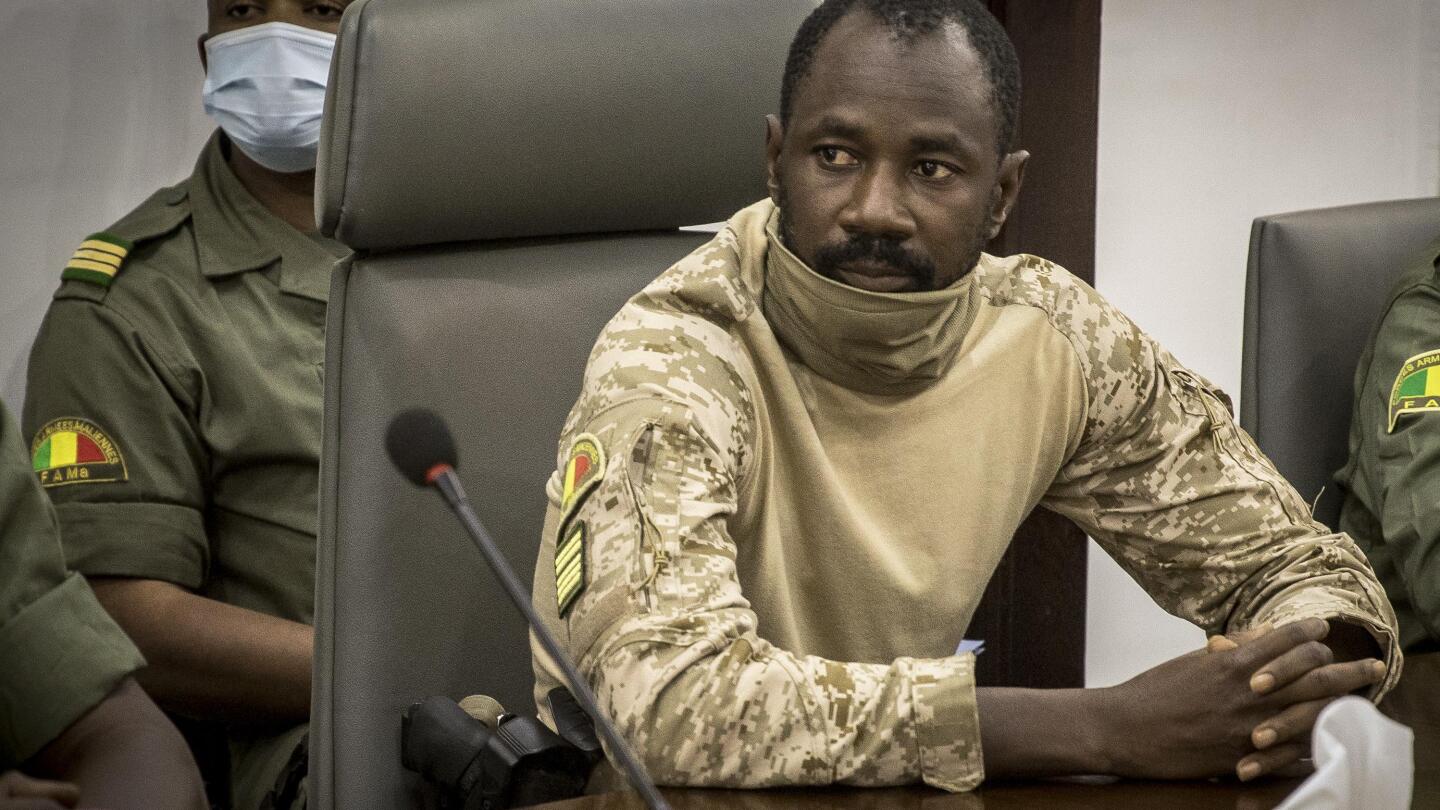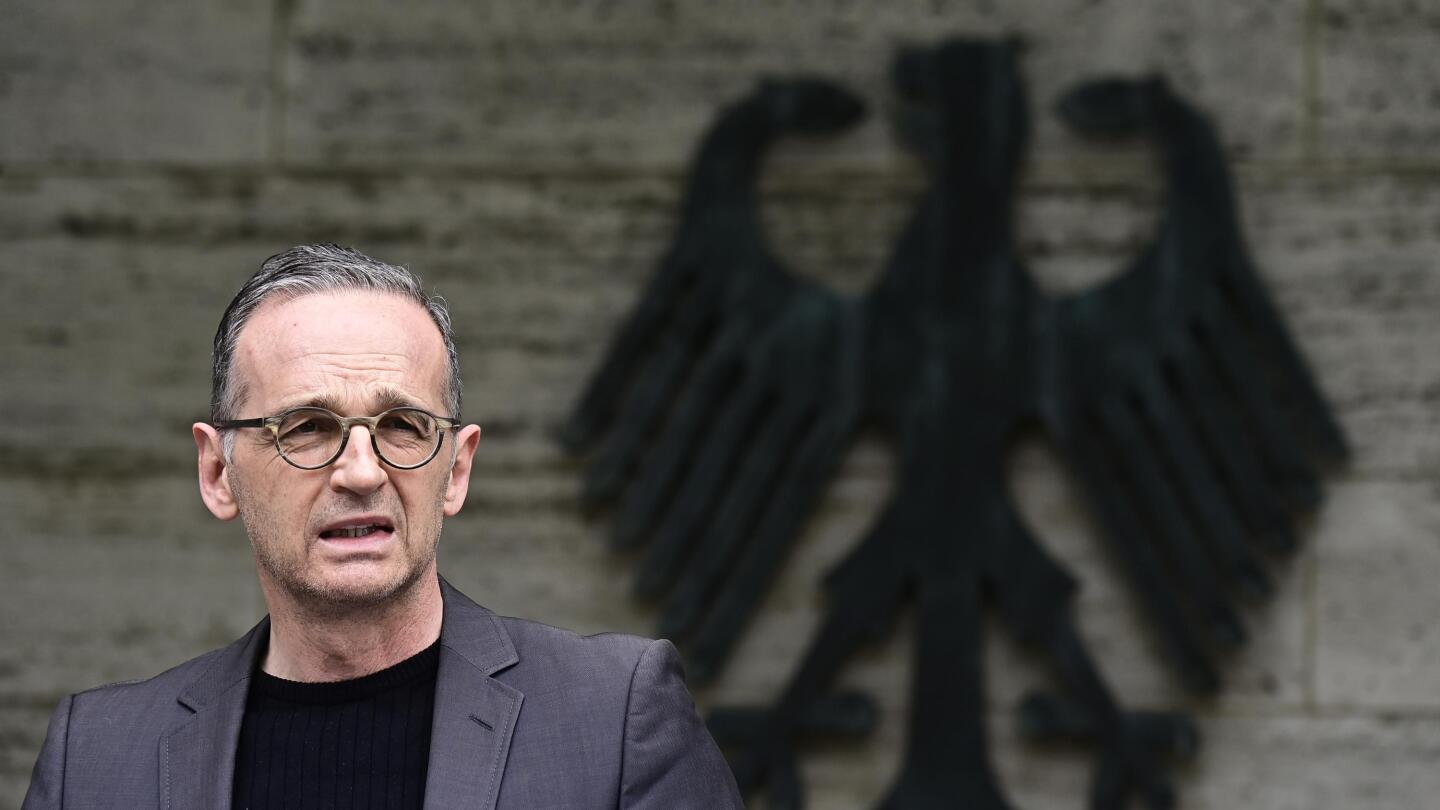Plain Jane
Just Plain Jane

Mali’s transitional president resigns while in detention
A representative of Mali's military says Mali’s transitional president and prime minister will be released from detention gradually after resigning in the presence of international arbitrators.
Mali’s transitional president resigns while in detention
By BABA AHMED and CARLEY PETESCHyesterday

1 of 4
FILE - In this Saturday, Aug. 22, 2020 file photo, Col. Assimi Goita meets with a high-level delegation from the West African regional bloc known as ECOWAS, at the Ministry of Defense in Bamako, Mali. Goita, has regained control of the West African country on Tuesday May 25, 2021, by deposing the president and prime minister of the transitional government in an unprecedented move. But Goita, who has served as vice president, is promising to still hold new elections next year. (AP Photo/File)
BAMAKO, Mali (AP) — Mali’s transitional president and prime minister will be released from detention gradually after resigning in the presence of international arbitrators who are in the West African nation to mediate the political crisis, the adviser to the military authority who detained the two leaders said late Wednesday.
The resignation by the leader of an 18-month civilian transitional government risks plunging the troubled nation into further instability.
The U.N. Security Council indicated Wednesday after a closed meeting that the resignations were forced and demanded an immediate resumption of the civilian-led transition and return of the military to their barracks.
The world body, along with the African Union and other international bodies, as well as the U.S., have urged Mali’s military to release the transitional leaders.
The leader of Mali’s 2020 coup, Col. Assimi Goita, who has been serving as the transitional vice president since September, regained control of the West African country by deposing the president and prime minister in an unprecedented move. President Bah N’Daw and Prime Minister Moctar Ouane were arrested Monday, along with other government leaders, hours after naming a new Cabinet that did not include two major former junta leaders.
While in detention, N’Daw dismissed the prime minister before handing in his own resignation letter, according to a military official and a West African diplomat involved in mediations. Both spoke on condition of anonymity because they were not permitted to speak to the press on the subject.
Maj. Baba Cisse, the special adviser to Goita, who led the arrests Monday that have sparked international condemnation, said the resignations by both the prime minister and president were done in the presence of arbitrators and offered assurances the leaders would eventually be released.
“After the resignation of the transitional president and his prime minister, the detainees will recover their freedoms. This will be done gradually for the obvious security reasons,” he said at a news conference.
Cisse recited a list of reasons for the arrests of Mali’s heads of government, including accusations that the prime minister blocked the vice president on certain defense and security issues and violated the transitional charter by not consulting Goita about the formation of a new government.
The U.N. Security Council met Wednesday over Mali and in a statement condemned the arrests and called for the immediate and unconditional release of all the officials detained.
The statement, which was approved by all 15 council members after closed consultations, said that “imposing a change of transitional leadership by force, including through forced resignations, is unacceptable.”
The Security Council said it “noted with concern the risk of negative impact of these developments on ongoing efforts to counter terrorism, implement the Agreement on Peace and Reconciliation in Mali, and stabilize the center of Mali.”
The Security Council reiterated its strong support for mediation efforts by the African Union and West African regional group, known as ECOWAS, led by former Nigerian President Goodluck Jonathan.
French President Emmanuel Macron described the week’s events as a coup and warned of repercussions, including targeted sanctions.
French government spokesman Gabriel Attal said Wednesday, “We were very clear with the junta: The transition must include civilians. It must be peaceful, it must be inclusive and it must be limited in time. What has happened ... constitutes for us a rupture of confidence.”
The European Union has also warned that it is “ready to consider targeted measures against political and military leaders who obstruct the Malian transition.”
The United States strongly condemned the detention of the civilian leaders, with the State Department saying it would be suspending security assistance to the Malian forces.
“The United States will also consider targeted measures against political and military leaders who impede Mali’s civilian-led transition to democratic governance,” State Department spokesman Ned Price said in a statement.
He said the U.S. was working closely with the local transition monitoring committee and other international actors to achieve the immediate and unconditional release of the government leaders held.
“A democratic, civilian-led government presents the best opportunity to achieve security and prosperity in Mali and the wider Sahel region,” the statement said.
Jonathan, who arrived Tuesday night with the West African delegation, said they came to Mali to listen to different parties, including the military, civil society groups and others.
Jonathan earlier acted as mediator in the political crisis last year after the junta detained former president Ibrahim Boubacar Keita on Aug. 18, forcing him to resign. ECOWAS previously threatened the junta with sanctions if it did not install a civilian president and prime minister, and shorten the transitional period to 18 months.
When Goita released a statement Tuesday, he pledged to move forward with new elections in 2022 as previously promised. But his display of force raises fears that there could be further significant interference by the junta that overthrew the last democratically elected president.
The new political unrest could further destabilize efforts to control Mali’s long-running Islamic insurgency. The U.N. now spends some $1.2 billion annually on a peacekeeping mission in Mali and France’s military has spent eight years trying to stabilize its former colony amid the ongoing threat.
___
Associated Press writer Baba Ahmed reported this story in Bamako and AP writer Carley Petesch reported from Dakar, Senegal. AP writer Elaine Ganley in Paris contributed to this report.













